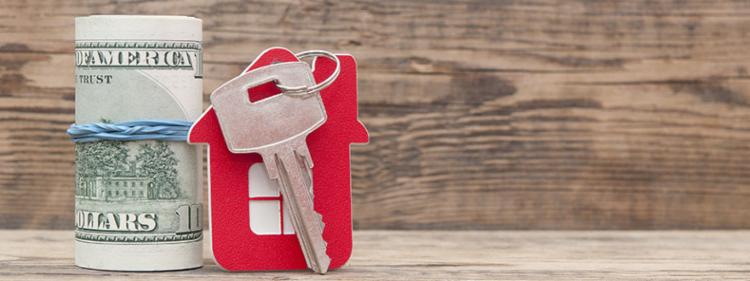How to Buy a House With Cash

Buying a house with cash is one option for prospective home buyers. However, if you want to pay in cash, you should know how to properly negotiate the deal and make sure that it's worth it on your end. Paying for a house with cash is certainly attainable if you have adequately saved along the way and are sure that you won't put yourself into a difficult financial position. If you are interested in understanding how to buy a house with cash, take a look at the following tips and suggestions.
But first, make sure you're covered with an affordable home insurance policy.
Should I Buy a House with Cash?
In short, if you have the money, it may actually be better to buy a house with cash. Buyers who pay in cash tend to be looked upon more favorably by real estate agents, and may be more likely than other buyers to secure the home they desire. In many cases, paying for a house with cash also helps to relieve you of mortgage payments, which home buyers who are not paying in cash may be striving to pay off over the next 15 to 30 years of their lives.
There are other advantages to buying a home with cash. The Wall Street Journal suggests that for people who buy a house with cash, the seller may be more willing to lower the price, because the buyer who pays with cash does not have to deal with lenders and try to meet their requirements for securing a loan on the house. The same source suggests that paying in cash helps to reduce the amount of paperwork and administrative fees at closing.
Just as buying a house with cash has its own advantages, there are disadvantages to consider as well. Perhaps the biggest disadvantage is that once the cash is out of your hands, you can't get it back or access it for other reasons. If there is an illness in the family, or someone finds themselves in financial difficulties, or another money-related problem arises, you need to make sure that you have enough money set aside to cover such expenses. People who have no source of steady income, such as retirees, may have trouble getting a second mortgage or a home equity loan.
How to Buy a House with Cash
Now that you're aware of the general advantages and disadvantages of buying a house with cash, it's time to take a look at the buying a house with cash process. The first step, as with most other major purchases, is to decide just how much you can afford, not only to buy the house, but also to be able to comfortably pay for monthly expenses and home repairs as needed. If you have savings of $200,000, you don't want to put it all towards the house. Keep enough money aside to cover yourself and your family in the event of a money emergency.
If you really want to buy a house with cash, start by considering the time value of money, and the home's value over time. Learnvest explains that the time value of money is a primary concept in investment theory. What it means is that the value of a home will change over time, and it provides you with a way to figure out what the home will really be worth in the future once inflation or any interest earned is factored in.
Before you take the plunge, you will want to evaluate the following:
- Your income
- Any liquid assets
- Existing or future financial obligations
In addition to making sure that you actually have the cash to cover the cost of a house, you will want to have life and health insurance in place, along with liquid assets that can cover a minimum of six months of expenses for you and family members.
The most difficult part may be figuring out your budget. A good rule of thumb is to begin with a budget that is a bit less than what you can truly afford, as this leaves some room for moving fees. The next step is to take a look at the real estate listings in your area, and contact a professional real estate agent to guide you through the process. Once you have found the house you desire, it's time to make an offer in cash.
Finishing the Deal
Once the deal is done, you should set up a time to close the deal when you, your agent, and the seller and his or her agent are all available. At the meeting, you should have a bank check for the price of the home. If the money is being wired into an escrow account, either an escrow agent or an attorney for you or the seller will need to create a contract, which is to be signed by both parties. A receipt may act as legal proof of the transaction.
Buying a house is a daunting process no matter how you are paying for it. For buyers who are opting to pay for the house in cash, there are other concerns to consider, including just how much you can truly afford. Then there are other costs to think about as well, such as the cost of home insurance.
Prospective home buyers with a good credit history can enjoy home savings and discounts, and an independent agent is available to help guide you through options and pricing information for homeowners insurance. Knowing the final tab can help put your mind at ease.
